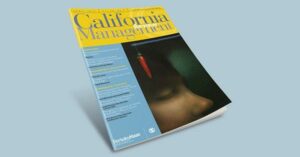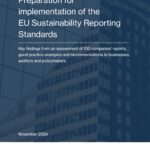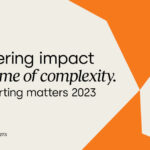
A publication of Jilde Garst, PhD, Karen Maas and Jeroen Suijs from the Impact Centre Erasmus is now online at California Management Review. In this article, they present the six main steps of materiality assessments for ESG reporting, the methods used, and how the complexity, uncertainty, and evaluative nature of sustainability issues complicate these assessments.
Abstract
Materiality assessments play an important role in helping firms to select the environmental, social, and governance (ESG) topics to include in their sustainability report. This article presents the six main steps of materiality assessments, the methods used, and how the complexity, uncertainty, and evaluative nature of sustainability issues complicate them. This article draws two conclusions: the selected materiality perspective influences how the other steps are conducted, and assessment results should not only focus on selecting win-win scenarios, but also on “tensioned topics,” which indicate material societal impact but lack a business case.



